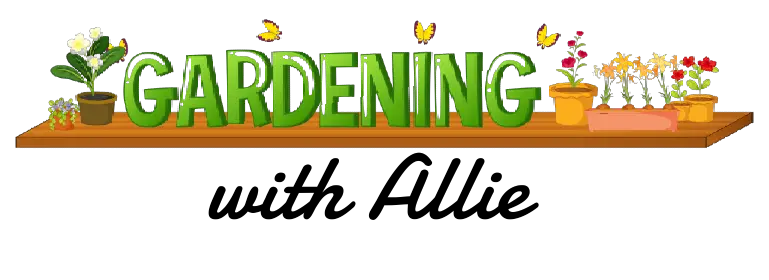There are many commercial plant foods and fertilizers out there. However, there is not necessarily a one size fits all fertilizer to grow different kinds of plants. This is because different plant types tend to need different nutrients to optimize their growth and development. Unfortunately, the same is true for growing tomatoes and cucumbers, particularly tomorite.
You can feed cucumber plants with tomorite, however, it does not contain the correct combination of nitrogen, potassium, or phosphorus for cucumbers to thrive.
This article will explain everything that gardeners need to know about growing healthy cucumber plants.

Can I Feed Cucumbers With Tomato Food?
Theoretically, yes, you can feed cucumbers with tomato food like tomorite. Many gardeners will do this because they grow tomato and cucumber plants in close proximity to each other. Even though tomorite and other kinds of tomato food will not necessarily harm your cucumber plants, it is not the best kind of fertilizer for cucumbers.
This is because the best fertilizers for cucumber plants will have more nitrogen, potassium, and phosphorus than tends to be present in quality tomato fertilizers. This means that, even though cucumber plants will grow in tomorite, they will not grow as well as they could in a fertilizer optimized for cucumber growth.
What Vegetables Can I Use Tomorite On?
As the name implies, tomotrie works best on tomatoes. This is because tomotrie was an optimal fertilizer for tomato development and growth. However, many people have success with growing some other kinds of plants using tomorite. Most of the time fruit producing plants tend to grow reasonably well in tomorie, such as:
- Cucumbers
- Eggplant
- Various types of peppers
Although you can use tomorite on these plants, it may not necessarily be the very best kind of fertilizer for them. Luckily, there are many different fertilizers and plant food products out there. If tomorite is not suggested for a particular plant or does not seem to be working out that great for them, then there are many other fertilizers out there that you can try out.
What Do You Feed Cucumbers With?
There are commercial plant foods out there specifically made for growing cucumber plants. This is generally the best type of plant food product to go for when it comes to cucumbers since it was created with growing cucumber plants in mind. However, many other kinds of fertilizer with high amounts of potassium tend to work well with cucumbers. This includes both natural fertilizers and those that are store bought.
What Is The Best Fertilizer For Cucumber?
The best fertilizers for cucumber plants contain nitrogen, calcium, and magnesium. Additionally, it is important that your fertilizer for your cucumber plants also contain potassium and phosphorus. This is because these three minerals are essential for growing cucumbers.
Many manufactured fertilizers, such as those produced by Miracle Gro, meet these requirements. A good rule of thumb is that a low nitrogen and high potassium fertilizer with an NPK ratio of 2-3-6 should work well for cucumber plants.
What Is The Best Organic Fertilizer For Cucumbers?
The best organic fertilizers are those that contain the nutrients that are needed for cucumber plants. You can find out what nutrients a fertilizer has and how much it contains by looking at the ingredients label on the bag. Additionally, compost can also work well for cucumbers. Not only is compost organic, but it is usually also made by the gardener, so they know exactly what went into it.
What Helps Cucumbers Grow?
There is more to growing cucumbers than just fertilizer, though. It is also important that a cucumber plant is planted in good quality soil, is watered enough, and receives the optimal amount of sunlight. Cucumber plants must get plenty of sunlight, so it is best to plant your cucumbers in a sunny spot. This will encourage them to grow, but it also prevents moisture and mildew.
In addition to this, you must water your cucumber plants at the base of the plant. This will keep the plant’s leaves from getting wet, which can cause mildew and other moisture related issues. It is also essential to keep your cucumber plant from drying out, stalling growth, and causing problems.
Things To Consider
When it comes to fertilizing your cucumber plants, gardeners may need to consider a few other things. These things include why fertilizing your vegetable plants is important and some more tips for growing your cucumber plants. Here are some additional things to consider about feeding cucumber plants with tomotide.
Why Is Fertilizing Your Vegetable Plants Important?
Many new gardeners may be surprised to discover just how important fertilizing their plants is. Fertilization is crucial for growing healthy plants because it contains the fuel that plants need to grow and develop properly.
Just like how different species of animals have different dietary needs, so do different species of plants. As a result, cucumber plants have different nutrient requirements than a plant like tulips do. Therefore, finding the right fertilizer for each plant will give you the best results.
More Tips For Growing Cucumber Plants
As you likely already know, a lot goes into growing a plant, and there are a lot of variables that gardeners need to be aware of. These include the type of fertilizer and soil to use, how much sun a plant needs, and how often a plant needs to be watered. You will need to consider even more things when growing cucumber plants, though. Here are some more tips for growing healthy cucumbers.
Don’t Overfeed Your Plant
Although fertilizing your cucumber plants is essential, you also need to avoid overfeeding your plants. This is because providing your plants with too many nutrients can prevent them from developing properly and lead to too rapid growth.
Keep An Eye On Your Plants As They Grow
Additionally, it is always important that you watch your cucumber plants as they grow. This way, you can note any signs of problems such as growth issues, developmental issues, or signs of illness or damage. Doing this will allow you to quickly make changes if needed and prevent damage to your plants.

Hi there, my name is Allie and welcome to my blog; GareningWithAllie!
Much of what you see written here is just our personal experiences with gardening. Along with the content I write here, there is also a unique collection of gardening topics covered by some of our close friends. I hope you find everything you read here to be helpful, informative, and something that can make your gardening journey the most lovely experience ever! With that said, Happy Gardening!
